|
Genres, Themes, Actors, and Directors:
- Dwarfs and Little People
- German Films
- Living Nightmare
- Rebellion
- Werner Herzog Films
Review:
More a surreal nightmare than a cohesive narrative, Werner Herzog’s Even Dwarfs Started Small tells the cryptic “story” of a group of German dwarfs who devolve into gleeful chaos once they escape from the clutches of their caretaker (Hermine). It’s never made clear exactly what kind of institution they’re rebelling against — some viewers call it a prison, others an insane asylum, still others a school — but Herzog’s point seems to be that it doesn’t quite matter. On a metaphorical level, the dwarfs represent all humans who are living in a meaningless world which is literally beyond their grasp, and who, once given the chance to do things their own way, are ultimately incapable of anything other than destructive and harmful actions.
Although the imagery in Dwarfs is consistently bizarre and surreal, Herzog tends to indulge certain scenes — such as the car going round and round on a dirt circle — until they run far longer than necessary; eventually, they become repetitive rather than novel. In addition, the footage of animals being harmed (yet another metaphorical layer) are — while ostensibly “authentic” rather than contrived for the film — too disturbing for comfort. Finally, though I admire Herzog’s boldly unique vision, I would prefer for his script to be at least a bit more comprehensible; there’s potential here for even sharper satire.
Note: It’s been suggested that a more appropriate translation of Herzog’s original title would be Even Dwarfs Had to Start Somewhere, which makes more sense within the film’s context of rebellion.
Redeeming Qualities and Moments:
- Surreal use of an all-dwarf cast
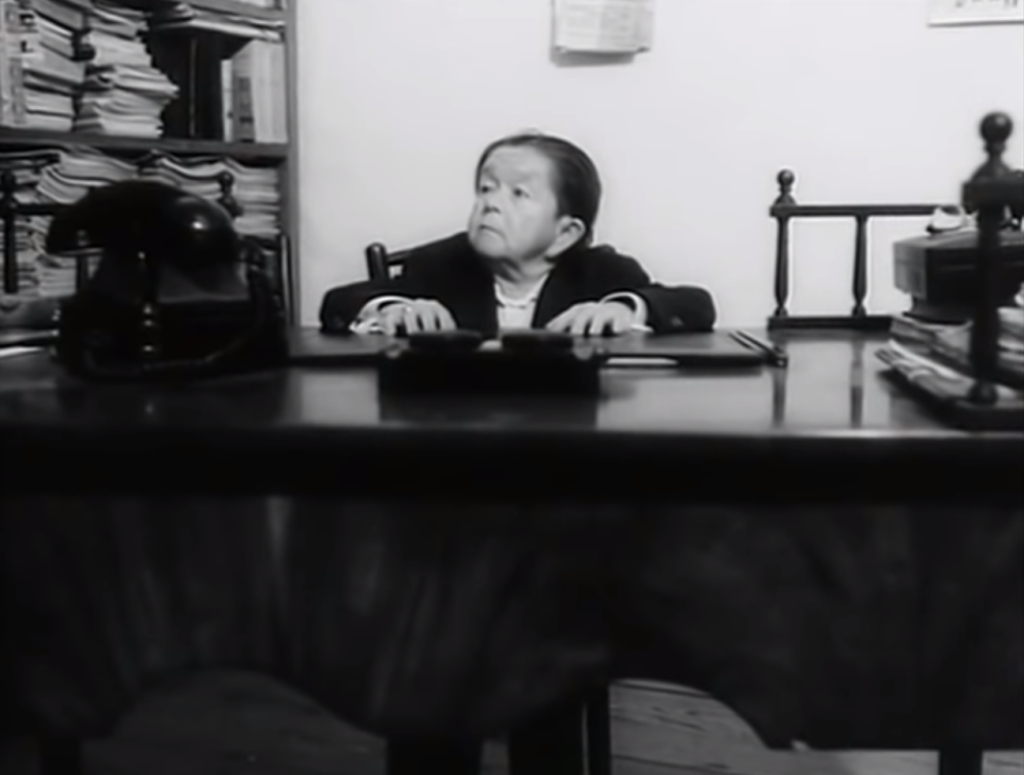
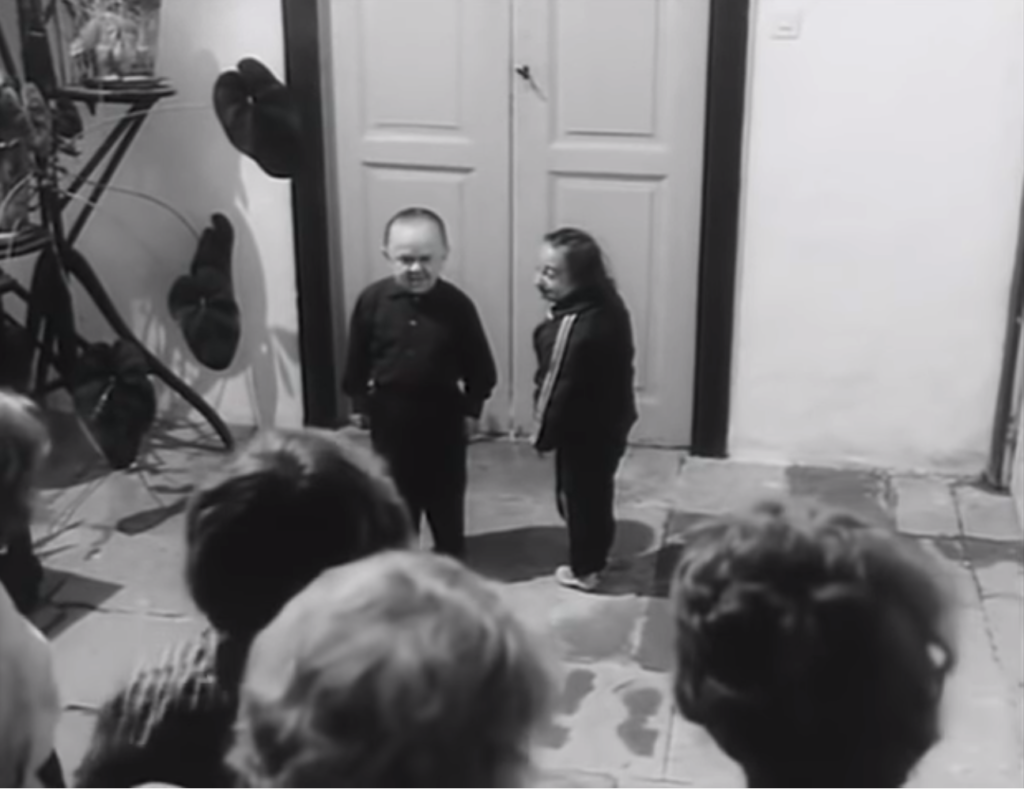
- Many genuinely disturbing images
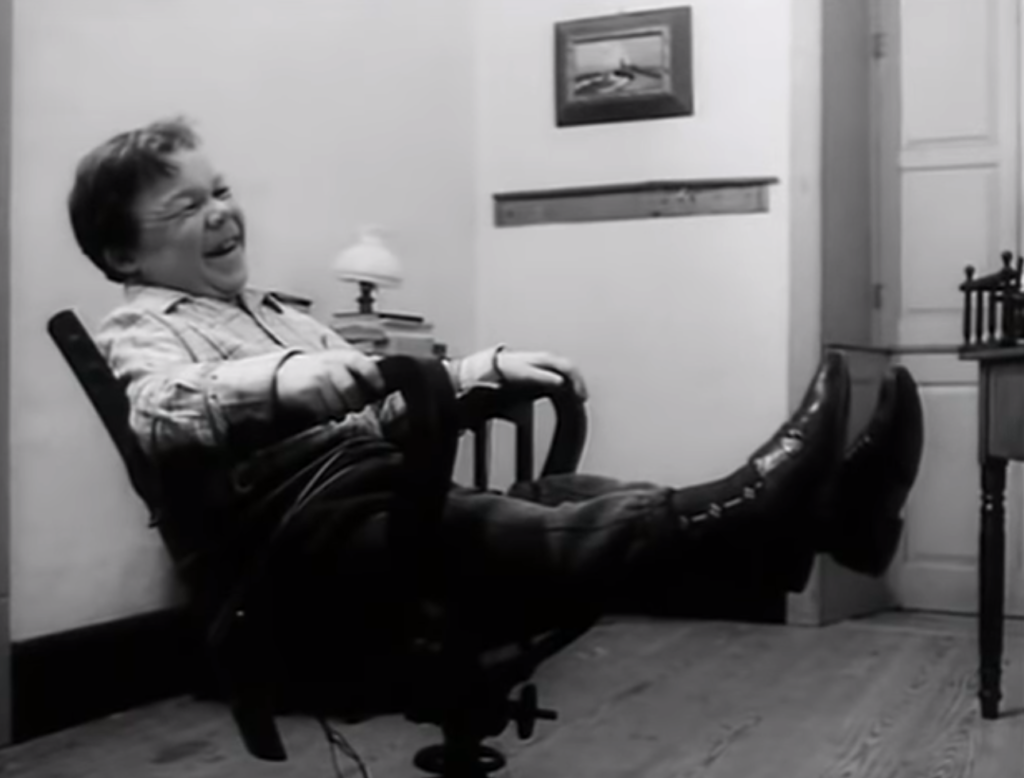
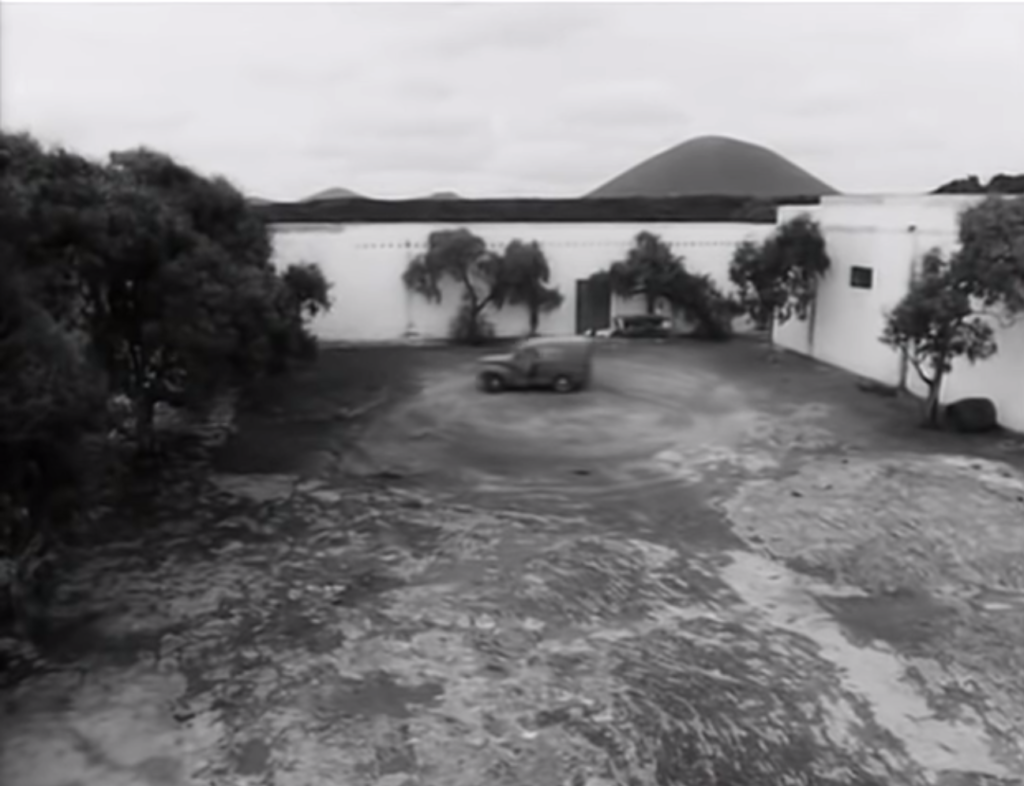
- Helmut Doring as Hombre, whose cackling laugh permeates the film
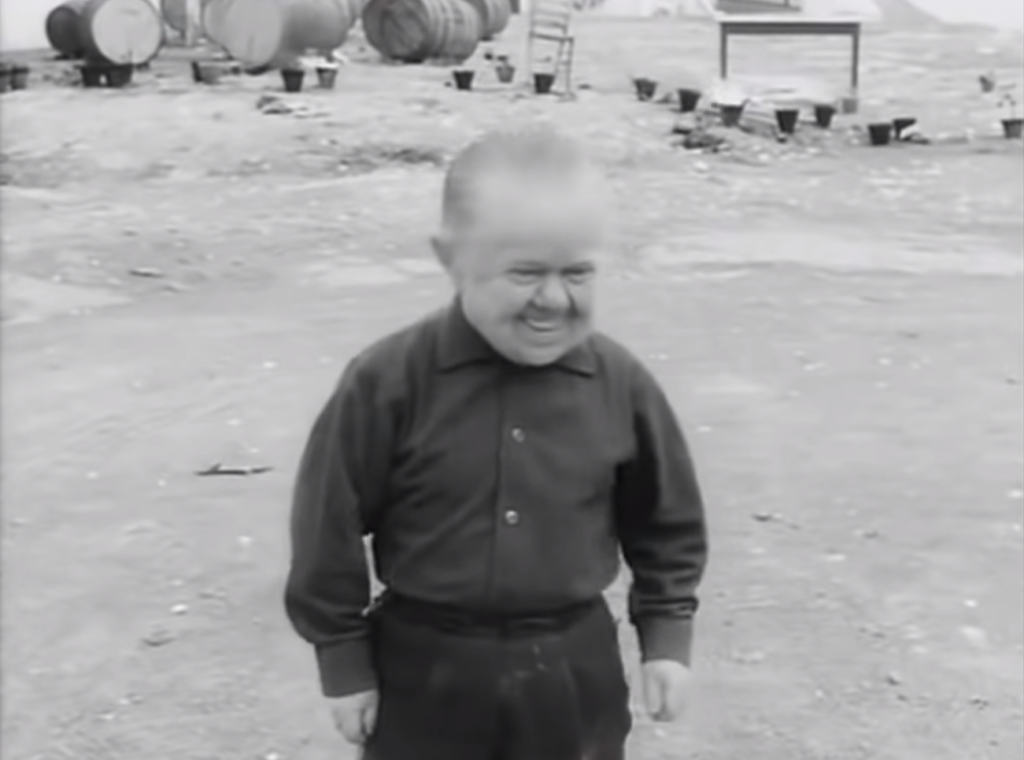
- The haunting tribal soundtrack
Must See?
No, though it’s worth a look as a one-of-a-kind cult favorite. Listed as a movie with Historical Importance and a Personal Recommendation in the back of Peary’s book.
Links:
|
One thought on “Even Dwarfs Started Small (1969)”
Not a must.
As written in the assessment re: ‘The Confession’, this is a film “one admires rather than enjoys.” It’s true that there’s certainly not another like it. Herzog is among our more audacious filmmakers (and is to be applauded for that), but there’s no denying he’s an acquired taste – even for film fanatics. I’ve seen much of his work, but probably prefer some of his more accessible, if still challenging, films (‘Fitzcarraldo’, ‘Nosferatu’, ‘Grizzly Man’).
This one seems rather heavily influenced by the plays of Samuel Beckett. And it may be best appreciated in a group – say, a film studies group, where everyone can discuss the film collectively afterwards re: what it’s all supposed to mean. The interpretation given in the assessment is all well and good (I’ll even buy it as valid) but, personally, I can’t claim to understand a frame – any more than I could one of my more memorable nightmares. Yet, the film isn’t exactly a nightmare – if it is, it’s a more pleasant one (if one can overlook certain images: the dead pig still giving suck to her piglets; the monkey substituting for Christ on the cross, etc.). And much of the dialogue does at least seem to be the product of dream-speak (“Let’s pour gasoline on the flowers. They’re in full bloom.”).
At any rate, the cast seems to be having a blast. DP Thomas Mauch’s b&w work is stunning. The mixture of Latin and what sounds like Congelese music (reminiscent of the use of the Missa Luba in Lindsay Anderson’s ‘If….’) is very effective. And, all told and for the patient with longueurs, Herzog does leave the viewer with much to think about.
However, objectively speaking, your mind could still simply wander.